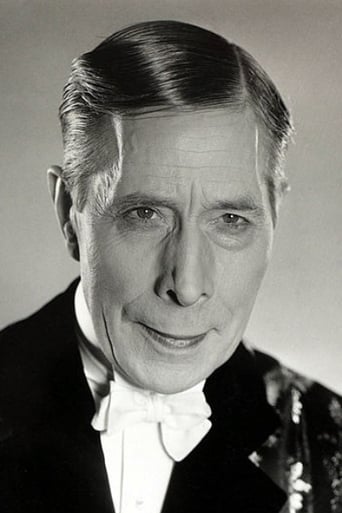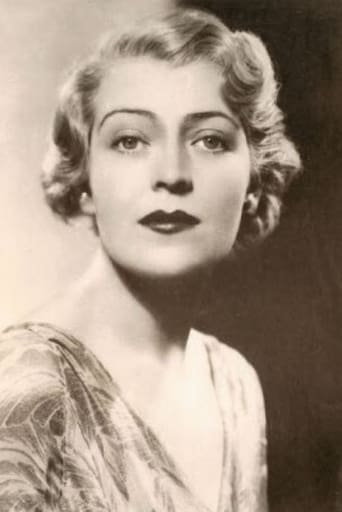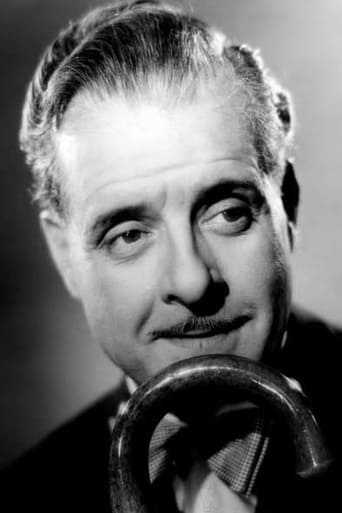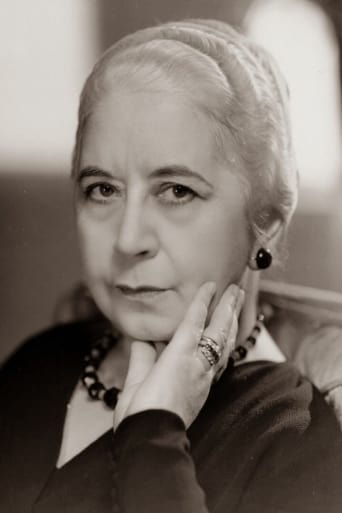Actuakers
One of my all time favorites.
FirstWitch
A movie that not only functions as a solid scarefest but a razor-sharp satire.
Fleur
Actress is magnificent and exudes a hypnotic screen presence in this affecting drama.
drjgardner
Many of the reviews have focused on Arliss and Davis, and deservedly so. Hence there's no need to rehash that material. I want to highlight the excellent supporting cast.Violet Heming (1895-1981) plays a suitor for Arliss. She was a British stage actress who worked with Arliss. She made few films (part of Thanhouser) and is best known for her stage work, which is unfortunate for the rest of us since her acting is really exceptional.Louise Closser Hale (1872-1933) plays Arliss' sister and confidant. She combined a grandmotherly spirit with a quick wit and a sometimes tart edge in supporting roles ("Daddy Long Legs", "Shanghai Express", "Platinum Blonde") and her skill is probably nowhere better on exhibit than in this film.Ivan Simpson (1875-1951) plays Arliss' manservant. He was a Scottish stage and film actor who worked with Arliss during the silent era. He made more than 100 films and later transitioned to TV. He was used extensively in the British dramas ("Prince and the Pauper", "Lloyds of London", "Captain Blood", "Mutiny on the Bounty"). This is probably the best example of his considerable talents, and the chemistry between he and Arliss is a joy to watch.Look for Ray Milland (uncredited) in a brief scene in which he plays a man threatened with prison. For Milland (1907-86) this was his 15th film and fame was still a few years ahead. Ultimately he won an Oscar for "The Lost Weekend" (1946).Also look for Hedda Hopper (1885-1966) as a west coast society matron. She is better known for her gossip columns, but she did, in fact, appear in over 100 films between 1916 and 1946.This isn't a perfect film. It's a bit too long, Arliss does a few too many silent era long closeups, and the age difference between Arliss and Davis (24 vs. 65) is a bit too much. Otherwise it is a definite treat and holds up well after all these years.
tpatbour
First and foremost, "The Man Who Played God" (1932) is not a Bette Davis vehicle. She was still a few years away from receiving top billing and graduating into 'A' pictures. However, the mere fact that she's in this overlooked and forgotten film will only push it into wider circulation and rapidly increase its number of viewers. So much has already been said about her, there's very little one can add to further compliment her. Personally, I think she gave some of her best performances in these early 1930s B programmers for Warner Bros. Sure, the material wasn't nearly as good, which only made her performances stand out all the more. But Bette Davis has little to do with what stands out about this movie.After losing his hearing, a well-loved and respected piano player (George Arliss) becomes a recluse. He rejects most of his old friends and companions, and is cruel to the few he does see. He learns to read lips, but grows more and more depressed at the same time. And finally when he has hit rock bottom, he finds a purpose in his life,... philanthropy. Putting aside his own problems and selfishness, his salvation comes from helping others. This is a theme that would recur over and over again to varying degrees in the Depression era 30s (especially in Frank Capra's movies).The other thing of interest here is the act of voyeurism. Through the aid of binoculars, he's able to read lips, and essentially, spy on everyday New Yorker's. One can't help but wonder if this little movie may have had some influence or have been the basis for the idea of Cornell Woolrich's short story "It Had to Be Murder", which would be eventually adapted into Alfred Hitchcock's "Rear Window" (1954).This movie, is, by no means a masterpiece, but its still an important one. With so many interesting ideas going on here, its well worth the watch.
sol1218
(Some Spoilers) Undoubtedly the best of the half dozen or so versions of the film released over the years which included the 1955 Liberace soap opera "Sincerely Yours". The movie "The Man Who Played God" is about how a person who knew nothing but success all his life being forced to see the world the way the vast majority of people see it,cold cruel and unfeeling. As well as have his faith in God and himself tested to the fullest extent possible. Born into money and a world renowned concert pianist Monty Royle has never had a bad thing happen to him in all his fifty years. Having his young and pretty music student Grace Blair fall in love with him Monty tells her that if she still feels the same way about him six months hence as she does now he'll marry her. Later after an exhilarating concert at the Paris Music Hall, which brought the roof down, Monty is about to give a private performance to a European monarch when a group of terrorists, from the Kings country, detonates a bomb that causes a massive explosion outside the hall. Monty completely loses his hearing and quickly falls into a deep depression knowing that the music that he plays and loves so much, that's his only reason for living, will never be played or heard or him again. Back home in New York Monty's depression gets more and more acute and even being taught to lip-read by Dr. Charles E. Adams can't make up for his not being able to hear his beautiful music. It's then that the thought of killing himself enters Monty's head.Attempting to jump out of a window in his suite of apartments Monty is saved from killing himself by his loyal and dedicated butler Battle. Told by Battle what a sniveling coward he his by him trying to do himself in Monty tries to pull himself together as he later starts to become somewhat of a voyeur. Watching the world go by from his porch and patio window overlooking New York's Central Park.It's then when Monty comes up with this idea of reading the lips, through high powered binoculars, of the people milling in and around the park.Finding out about peoples problems and then helping them out from a distance gave Monty the feeling that he was working at the right hand of God and doing God's work for the good of all Mankind. Egotistical yes But Monty's obsession did help the people that he spied upon with money to help them out of their depressing situations in life. In one case he even prevented a couple whom the man, who was about to be arrested for embezzlement, from committing suicide. When Battle came to their rescue by paying back the stolen money, just in the nick of time, before they swallowed a poison cocktail.All this time Mildred Miller who carried a torch for Monty for years knew that Grace had fallen in love with Harold but couldn't bring herself to tell Monty since she felt that it would kill him if she did. Monty later seeing Grace and Harold, who just came back from Pasadena with his binoculars outside in the park. And to the objection of Mildred, who was with him by the window, reads Grace and Harold's lips and realizes that she's not in love with him anymore she's really in love with Harold.Monty now has the biggest decision of his life to make: keep Grace from marrying Harold, whom she's in love with, or letting her guilt-feelings about poor Monty take over her mind and have her marry him. Monty sets Grace free from the emotional tie thats between her and him by letting her know that it's all right to follow her heart and marry Harold and that he'll do nothing to stand in Grace's way. Fine movie about faith in God and in one's own ability to see things through and let the chips fall where they may no matter what the consequences turn out to be. At the start of the move "The Man Who Played God" Monty was interrupted in giving a performance to a king that cost him his hearing. When the movie ended Monty gave the greatest performance of his life at the at the quaint little Manhattan church that his late mother, Margrate Ruth Royal, attended all her life and that he donated the new church organ in her memory. Alone with only Mildred in attendance Monty gave the opening performance of the new church organ not to just any king mind you but to the King of Kings himself.
Schlockmeister
In 1932 many actors were still rather new to sound pictures and the great majority of them were theatre trained and while some would stay on in Hollywood, many would return to the stage to stay. Bette Davis was a young actress in the midst of making that decision to aty in Hollywood or return to New York and the stage. She had made several low buget pictures, but things just were not clicking for her. The success of this movie and the attention she received convinced her to stay on and make movies and we are all thankful for that. George Arliss was a grand old man of the stage and his artistry is well portrayed here. His makeup is a little heavy, making him look a little like the Phantom of The Opera with lipstick and darkened nostrils, but soon you get beyond that. The acting is almost strictly stage-style here, this MUST have been a play before it was filmed. The blocking and angles of the actors and the way they seem to talk "at" each other rather than to each other shows the stage acting. Great story, nice escapism... who wouldnt like to help others? We can do that through George Arliss in this movie.




